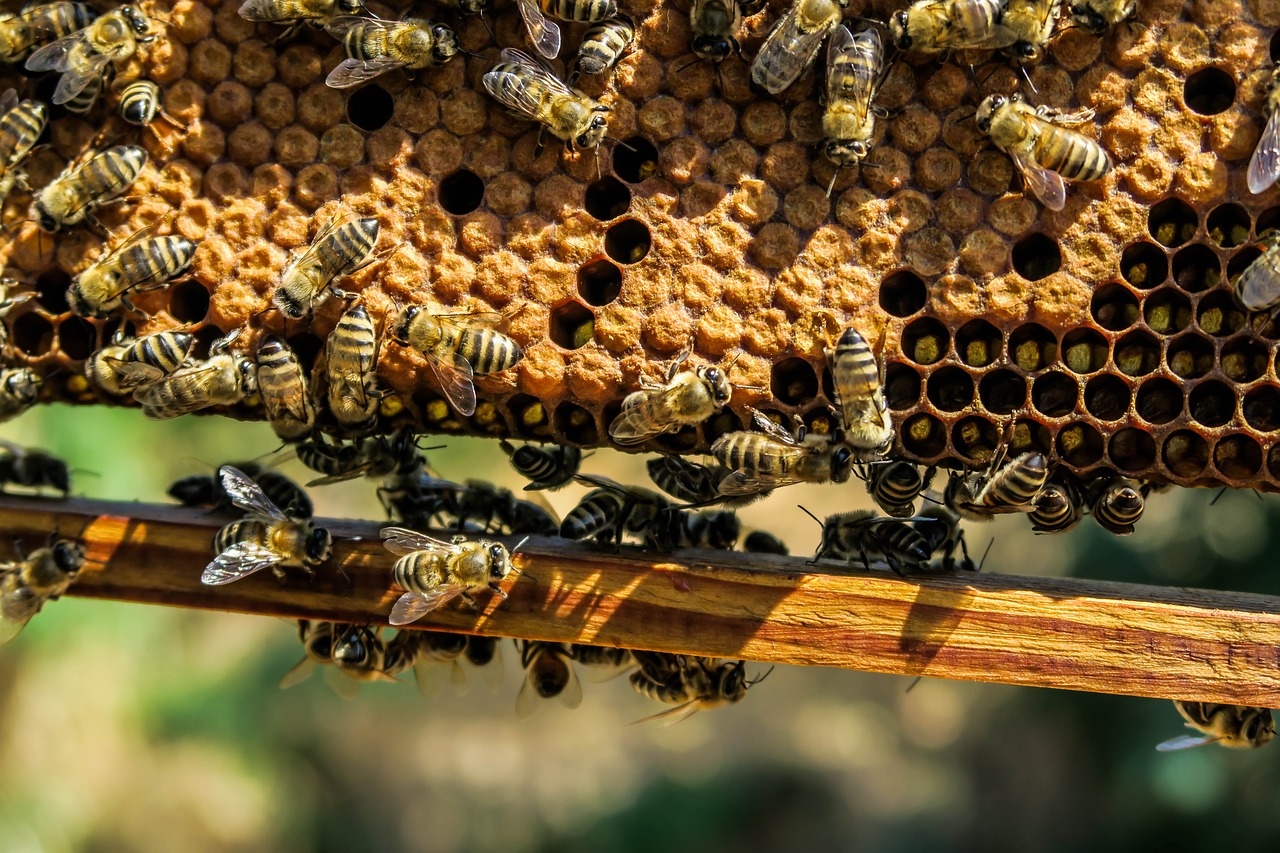 Brandon Turbeville
Brandon TurbevilleNatural Blaze
April 16, 2018
New research in both Europe and the United States has demonstrated yet another disturbing link between insecticides known as neonicotinoids and their adverse effects on honey bees. Prior to the research, which was conducted at the University of Buenos Aires by Carolina Gonalons and Walter M. Farina, it was already widely known that chemicals like Glyphosate, a ubiquitous herbicide, is at least partly responsible for the decline in the bee population.
The new research decided to examine the effects of “field-realistic concentrations” of common farm chemicals on young worker bees.
As Sustainable Pulse writes,
The role of worker bees is related to age. Young worker bees perform vital tasks such nest maintenance and care of the eggs and pupae. Later in life they become field or forager bees, and gather nectar and pollen for the colony. These skills involve behavioural plasticity, memory and discernment, so the Goñalons and Farina believe the young bees serve as important bioindicators to study the effects of these chemicals on colony health.
The researchers measured the effect of glyphosate and neonicotinoids on bees by exposing them to a variety of concentrations of the chemicals.
Since the concentration of the chemicals were too low to kill the bees immediately, the testing method was to train the bees to carry out a variety of tasks, administer the chemical, and test the bees’ performance after various levels of the chemicals had been administered. The responses were assessed at 5,9, and 14 days old.
The bees were given outfitted with “tiny bee-sized harnesses” and trained to respond to various levels of smells and sucrose solution. These responses were measured by a number of different methods, but most antennae movement and extension of mouth parts.
Both of the chemicals had a negative effect on the bees’ olfactory learning and reduced sense of taste.
Ultimately, the paper demonstrated that the neonicotinoids and glyphosate negatively affect memory, smell, and taste in young bees. This is concerning due to the fact that the bees require these senses and skills for foraging. Thus, when young bees become brain damaged, the damage to the colony as a whole does not stop there but extends to the period of time when they are expected to take over the reigns of foraging. Clearly, this double tap poisoning of bees in mass agriculture could be contributing to colony collapse.
Indeed, the authors of the study are also concerned that the damages sustained to the ability to forage could threaten the survival of the bee colony as a whole, particularly at the end of summer.
Please note: This author does not condone animal testing.
Please help us out by sharing!

This article (Young Hive Bees Poisoned By Insecticides Gathered By Addled Forager Bees) was created by and appeared first at Natural Blaze. It can be reshared with attribution but MUST include link to homepage, bio, intact links and this message. Image: Pixabay
Get a nifty FREE eBook – Like at Facebook, Twitter and Instagram. Can republish but MUST include author name + link back at the TOP, links and bio intact. Must include this message!

Brandon Turbeville – article archive here – is an author out of Florence, South Carolina. He is the author of six books, Codex Alimentarius — The End of Health Freedom, 7 Real Conspiracies,Five Sense Solutions and Dispatches From a Dissident, volume 1 and volume 2, The Road to Damascus: The Anglo-American Assault on Syria,and The Difference it Makes: 36 Reasons Why Hillary Clinton Should Never Be President. Turbeville has published over 1,000 articles dealing on a wide variety of subjects including health, economics, government corruption, and civil liberties. Brandon Turbeville’s podcast Truth on The Tracks can be found every Monday night 9 pm EST at UCYTV. He is available for radio and TV interviews. Please contact activistpost (at) gmail.com.
No comments:
Post a Comment
Note: Only a member of this blog may post a comment.